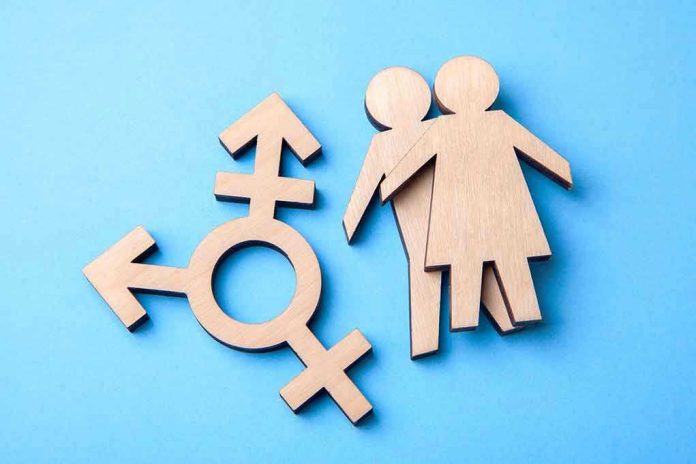
A court order violation involving a deported transgender woman highlights tensions between executive actions and judicial oversight.
Story Highlights
- The Trump administration deported a transgender woman against a court order.
- Legal challenges are ongoing against anti-LGBTQ+ policies.
- Federal courts have issued injunctions to protect transgender rights.
- Executive overreach raises constitutional concerns.
Violation of Court Orders in Deportation
The Trump administration’s deportation of a transgender woman has sparked significant controversy as it directly contravened a federal court order. This incident underscores the ongoing clash between executive policies and judicial authority, particularly regarding the rights of transgender individuals in federal custody. The deportation occurred despite a court injunction meant to prevent such actions and ensure the provision of necessary gender-affirming care.
Legal experts and advocates warn that this incident is emblematic of a broader pattern of executive overreach targeting LGBTQ+ rights. The administration’s policies, which include prohibiting gender-affirming care and enforcing strict gender-based facility placement, have faced multiple legal challenges.
Civil rights organizations, including the ACLU and Transgender Law Center, have been at the forefront of these legal battles, seeking to uphold the constitutional rights of affected individuals.
Ongoing Legal Battles and Court Interventions
In response to the executive orders issued in January 2025, federal courts have taken steps to protect transgender individuals. A preliminary injunction granted in April 2025 temporarily halted the enforcement of policies prohibiting gender-affirming care for certain plaintiffs. Despite these judicial interventions, the wrongful deportation incident highlights the challenges of enforcing court orders amid aggressive executive actions.
The federal judiciary continues to play a critical role in addressing these issues, with recent rulings reinforcing protections for transgender individuals. In August 2025, a renewed preliminary injunction was issued, preventing officials from withholding necessary healthcare from incarcerated transgender people. This judicial oversight aims to counteract executive policies that many view as discriminatory and unconstitutional.
Constitutional Concerns and Executive Overreach
The deportation incident and related policies raise significant constitutional concerns, particularly regarding executive overreach and the erosion of judicial authority. Legal scholars argue that denying gender-affirming care constitutes cruel and unusual punishment, violating the Eighth Amendment. The administration’s actions have also prompted criticism from civil rights advocates who emphasize the humanitarian consequences of these policies.
As litigation continues, the broader implications of these executive actions remain under scrutiny. The ongoing legal battles serve as a critical test of the balance between executive power and judicial oversight, with significant ramifications for the rights and protections of transgender individuals in the United States.
The controversy surrounding the deportation and related policies is likely to persist as advocacy groups and legal experts continue to challenge the administration’s approach. The outcome of these legal proceedings will have lasting impacts on the future of LGBTQ+ rights and executive authority in the country.
Sources:
LGBTQ+ Bar Association Executive Order Litigation Tracker
ACLU: Kingdom v. Trump Case Documents and Press Releases














